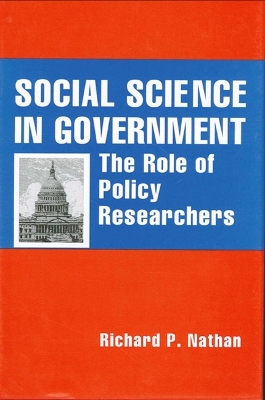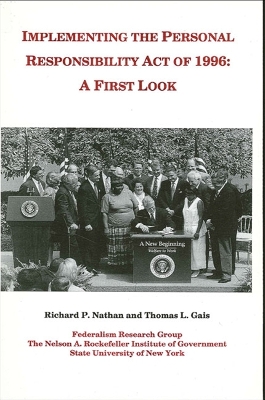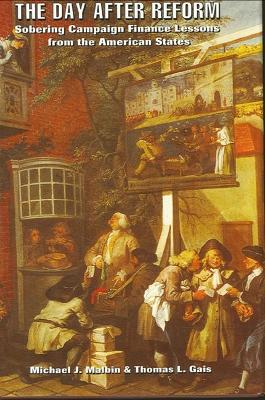Rockefeller Institute Press
3 total works
This book presents a lively retrospective account of a career as an inner and outer in American government and academe by a social scientist who has spent many years conducting evaluation studies of what works-and what doesn't work-in domestic public affairs. It uses rich histories of prominent policy issues and descriptions of major studies of welfare and job programs to bring to life crucial questions about how social science can best serve social policy. This is a new, substantially updated, and expanded version of a book published by Basic Books over a decade ago.
Richard P. Nathan writes about the real politics of social science research in a style for both practitioners and students of American government. Reviewing the earlier version of this book, James Q. Wilson said Nathan "summarizes in plain English what he has learned about how to evaluate public policy. It is an important book for a political system that may have wearied of adopting programs simply because they make us feel good or serve ideological ends." Robert Reischauer, President of The Urban Institute, commented, "Nathan's book is essential reading for policymakers who must look for ways to identify efficient government programs."
Richard P. Nathan writes about the real politics of social science research in a style for both practitioners and students of American government. Reviewing the earlier version of this book, James Q. Wilson said Nathan "summarizes in plain English what he has learned about how to evaluate public policy. It is an important book for a political system that may have wearied of adopting programs simply because they make us feel good or serve ideological ends." Robert Reischauer, President of The Urban Institute, commented, "Nathan's book is essential reading for policymakers who must look for ways to identify efficient government programs."
Implementing the Personal Responsibility Act of 1996
by Richard P. Nathan and Thomas L Gais
Published 1 January 1999
For more than twenty-five years, campaign finance reform has been based on assumptions that no longer match the realities of modern campaigning. Despite this, many of the supposedly new proposals on the national agenda continue to be based on the old set of assumptions and to produce stalemate.
However, even while Congress has deadlocked, more than half of the states have revised their laws on campaign finance. Some of these are now being promoted actively as models to be emulated. Michael J. Malbin and Thomas L. Gais look at the states to see how campaign finance reforms have actually worked out-what has happened after candidates, political parties, and interest groups have had a chance to adapt to them.
This book is based on a fifty-state survey of campaign finance laws and their administering agencies, analyses of reports from the states that release candidate-level data, and extensive open-ended interviews with political leaders in half a dozen jurisdictions with among the most ambitious regulatory frameworks. It concludes with recommendations based on realistic assumptions set in a package that is designed to remain workable over the long haul.
However, even while Congress has deadlocked, more than half of the states have revised their laws on campaign finance. Some of these are now being promoted actively as models to be emulated. Michael J. Malbin and Thomas L. Gais look at the states to see how campaign finance reforms have actually worked out-what has happened after candidates, political parties, and interest groups have had a chance to adapt to them.
This book is based on a fifty-state survey of campaign finance laws and their administering agencies, analyses of reports from the states that release candidate-level data, and extensive open-ended interviews with political leaders in half a dozen jurisdictions with among the most ambitious regulatory frameworks. It concludes with recommendations based on realistic assumptions set in a package that is designed to remain workable over the long haul.


